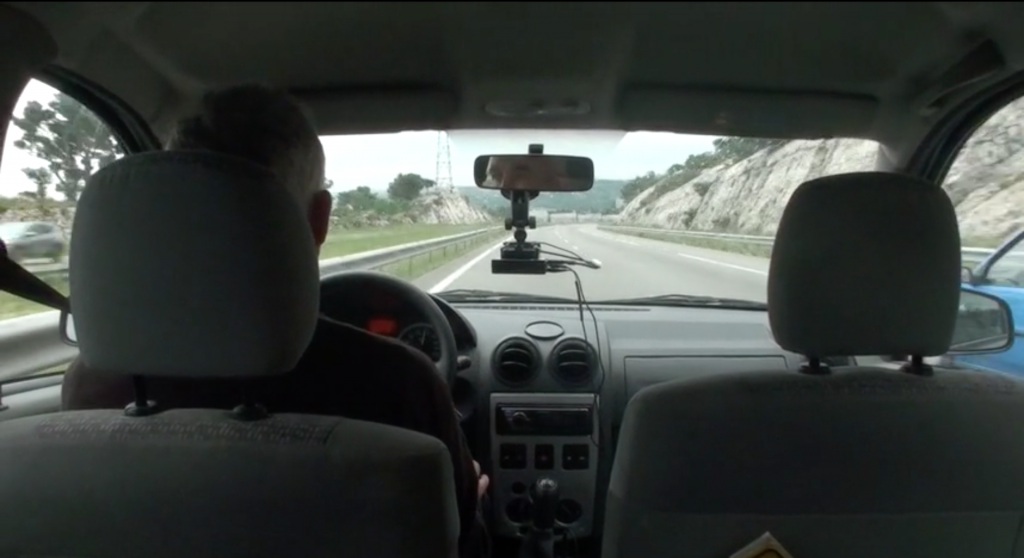Peter Sinclair
Peter Sinclair
Completed PhD Student
2009 - 2014
Peter Sinclair (Ph.D University of Arts London) is a Sound Artist, Co-Director with J. Joy of Locus Sonus Sound Lab and professor at École d’Art d’Aix-En-Provence (France). Long time builder of autonomous musical machines and sound installations, his work today focuses on the mediation of real time data and mobile audio media. He has exhibited and performed frequently in Europe and the US in such venues as Exploratorium San Francisco, MAC de Lyon (Musiques en scène), Postmasters Gallery New-York, Festival Interférences Belfort, Eyebeam – Beta Launch – NewYork, Festival de Cinéma et de Nouveaux Media Split, ISEA Nagoya, STEIM Amsterdam, La Gaîté Lyrique Paris, etc.

PhD
Using Real-Time Data Flux In Art – The Mediation Of A Situation As It Unfolds: RoadMusic – An Experimental Case Study
The practice driving this research is called RoadMusic. The project uses a small computer based system installed in a car that composes music from the flux of information it captures about the journey as it unfolds. It uses a technique known as sonification that consists of mapping data to sound. In the case of RoadMusic, this data capture is realtime, external to the computer and mobilised with the user. This dissertation investigates ways in which such a sonification can become an artistic form.
To interrogate the specificity of an art of real-time it considers philosophical theories of the fundamental nature of time and immediacy and the ways in which the human mind ‘makes sense’ of this flux. After extending this scrutiny via theories of system and environment, it proceeds to extract concepts and principles leading to a possible art of real-time flux. Time, immediacy and the everyday are recurring questions in art and music, this study reviews practices that address these questions, essentially through three landmark composers of the twentieth century: Iannis Xenakis, John Cage and Murray Schafer. To gain precision in regards to the nature of musical listening it then probes theories of audio cognition and reflects on ways in which these can apply to real-time composing. The art of sonifying data extracted from the environment is arguably only as recent as the computer programs it depends on. This study reviews different practices that contribute towards a corpus of sonification-art, paying special attention to those practices where this process takes place in real-time. This is extended by an interrogation of the effect that mobility has on our listening experience.
RoadMusic is now a fully functional device generating multi-timbral music from immediate data about its surroundings. This dissertation argues that this process can be an alternative to mainstream media systems; it describes how RoadMusic’s programs function and the ways in which they have evolved to incorporate the ideas developed in this thesis. It shows how RoadMusic is now developing beyond my own personal practice and how it intends to reach a wider audience.
Supervisors
- Prof. Angus Carlyle (DoS)
- Stuart Jones
Website
Contact
petesinc@nujus.net
